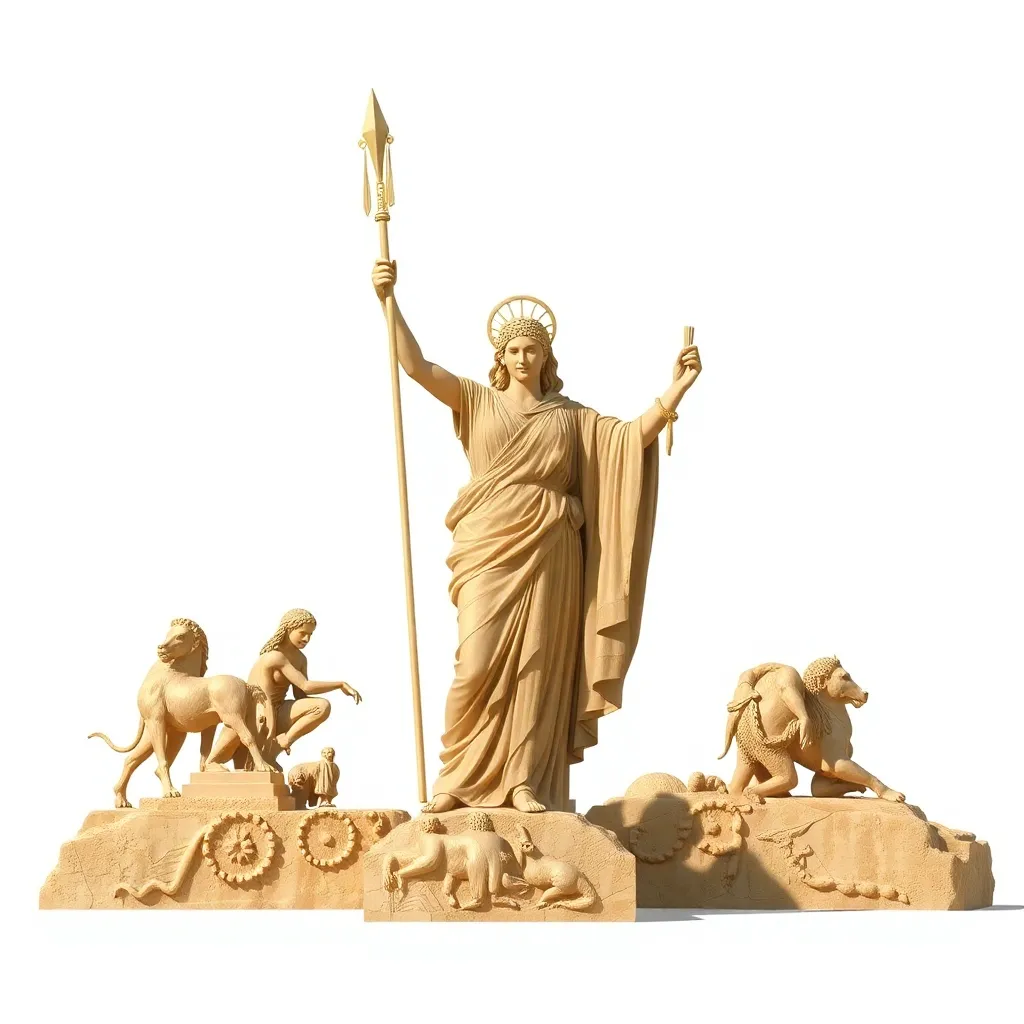Athena’s Influence on Education: A Historical Perspective
I. Introduction
Athena, the ancient Greek goddess of wisdom, courage, and strategic warfare, stands as a powerful symbol of knowledge and enlightenment. Her legacy has transcended time, influencing various aspects of culture and society, particularly in the realm of education. In ancient civilizations, education was deemed essential for the development of both individuals and societies, shaping thinkers and leaders who would leave lasting impacts on the world.
This article aims to explore Athena’s profound influence on educational practices throughout history, examining her mythological roots, her role in ancient Greek education, the Renaissance revival of her ideals, and the ongoing relevance of her wisdom in contemporary educational philosophies.
II. The Mythological Foundations of Athena
Athena’s origin is steeped in rich mythology. According to legend, she was born fully grown and armored from the forehead of Zeus, the king of the gods, symbolizing her connection to intellect and reason. Athena is often depicted with attributes such as a helmet, shield, and spear, embodying both wisdom and warfare.
As the goddess of wisdom, Athena played a multifaceted role in Greek mythology. She was not only a protector of heroes like Odysseus but also a patroness of various arts and crafts. Her association with wisdom is further emphasized by the symbolism of the owl, an animal frequently linked with Athena and representing knowledge, insight, and intuition.
III. Athena and Ancient Greek Education
The structure of education in ancient Greece was notably distinct from modern systems. It was largely informal and varied significantly across city-states. Education was primarily reserved for free male citizens, focusing on physical training, music, poetry, and rhetoric. Philosophy emerged as a critical aspect of this education, with figures such as Plato and Aristotle deeply influenced by Athena’s ideals.
- Plato: In his works, Plato emphasized the importance of wisdom and knowledge in achieving a just society, much in line with Athena’s values.
- Aristotle: As a student of Plato, Aristotle further developed the concept of education as a means to cultivate virtue and knowledge, echoing Athena’s influence.
Institutions like the Academy in Athens and the Lyceum, founded by Aristotle, played pivotal roles in promoting intellectual thought, with Athena as a guiding figure in the pursuit of knowledge and philosophical inquiry.
IV. The Renaissance: A Revival of Athena’s Ideals
The Renaissance marked a significant resurgence of classical knowledge and ideals, with a renewed interest in the philosophies of ancient Greece. During this period, Athena emerged as an emblem of humanism and secular education, symbolizing the quest for knowledge and the value of individual intellect.
Key figures inspired by Athena’s principles included:
- Leonardo da Vinci: His multidisciplinary approach to learning reflected the Renaissance ideal of a well-rounded education.
- Erasmus: Advocated for education based on classical texts, promoting critical thinking and moral philosophy.
Institutions during this time also emphasized the importance of liberal arts, reflecting Athena’s enduring legacy in shaping educational frameworks that prioritize holistic learning.
V. Athena’s Impact on Modern Educational Philosophy
The evolution of educational theories in the modern era has been significantly influenced by Athena’s ideals. Contemporary educational frameworks often emphasize critical thinking, creativity, and a liberal arts approach to learning, all of which resonate with Athena’s legacy.
Connections between Athena and modern educational philosophies include:
- Critical Thinking: Encouraging students to question, analyze, and evaluate information aligns with Athena’s wisdom.
- Liberal Arts Education: The promotion of a broad-based education fosters well-rounded individuals, akin to the holistic approach Athena represents.
Moreover, Athena’s legacy has inspired a greater role for women in education. As a strong female figure in mythology, she has become a symbol of empowerment, encouraging women to pursue knowledge and leadership roles in various fields.
VI. Athena in Art and Literature
Athena’s presence in art and literature has often been intertwined with themes of education and wisdom. Many artists have depicted her in educational contexts, showcasing her as a source of inspiration for scholars and thinkers.
Literary references to Athena abound, with numerous works highlighting her influence on learning. For instance, Homer’s epics often illustrate Athena guiding heroes toward knowledge and strategic thinking, emphasizing the value of wisdom in overcoming challenges.
The lasting legacy of Athena in cultural narratives about education continues to resonate, reinforcing the importance of intellectual pursuit and moral integrity.
VII. Global Perspectives on Athena’s Influence
Athena’s ideals have transcended Western educational traditions, finding resonance in various cultures around the world. The concepts of wisdom and knowledge are universal, and many cultures have their own figures that embody similar principles.
In a comparative analysis of wisdom figures in different cultures, we can observe:
- Sophia: In Christian theology, often associated with divine wisdom.
- Confucius: In Chinese philosophy, emphasizing the importance of education and moral development.
Athena’s role in promoting global education and cross-cultural exchange highlights the universal quest for knowledge, bridging gaps between diverse educational traditions.
VIII. Conclusion
Athena’s enduring influence on education is evident throughout history, from her mythological foundations to her impact on ancient Greek educational practices, the Renaissance revival of her ideals, and her relevance in modern educational philosophies. Her symbolism as a goddess of wisdom continues to inspire educators and learners alike, emphasizing the importance of knowledge, critical thinking, and moral integrity in education.
As we reflect on the relevance of Athena’s ideals in today’s educational landscape, it becomes clear that her wisdom can guide us in fostering an environment that values learning, creativity, and empowerment. Educators are encouraged to incorporate Athena’s principles into their teaching practices, ensuring that her legacy of wisdom and knowledge continues to thrive in future generations.




